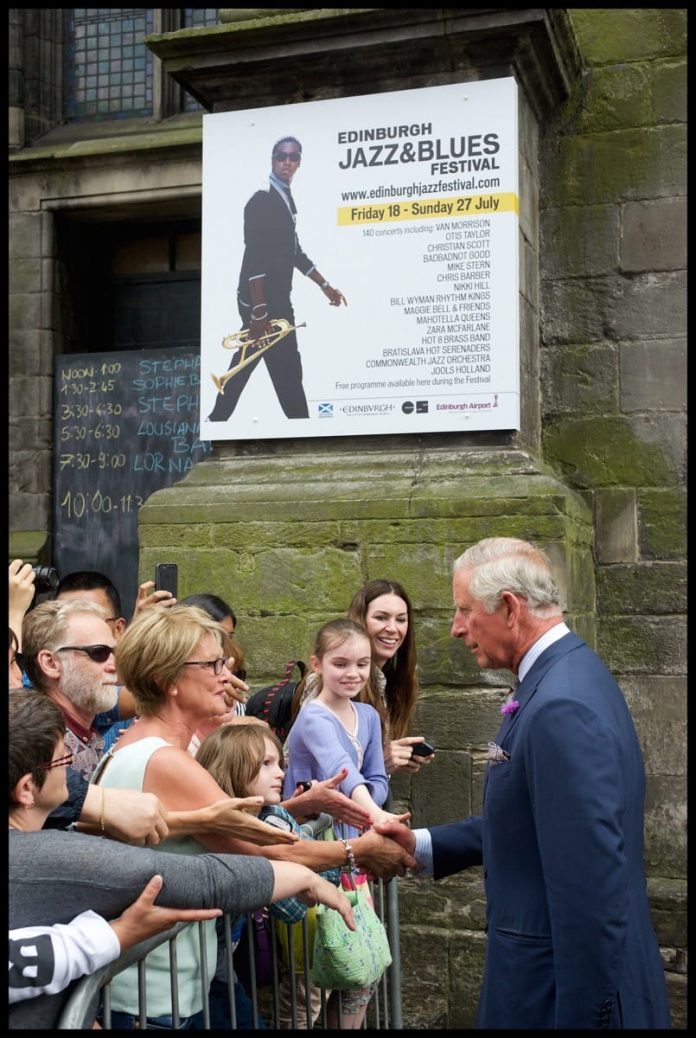Those fortunate enough to make a living from the “liberal” professions such as journalists, artists, actors and musicians are dependent upon many factors, one of the most important of which is freedom of movement.
Music knocks down all barriers, the first of which is language. Music is its own language and barriers of age, colour, class and nationality cease to exist. Integration comes naturally to any musician and barriers, real or imagined, just don’t exist because the ability to play the instrument of choice rises above all other considerations, including money.
Having been a volunteer at the Edinburgh International Jazz Festival for many years during the 80s and 90s, I can attest to the fact that such festivals are joyous occasions when bands from all over the world can strut their stuff and through jam sessions can strut with other musicians of all shapes and sizes, colours and creeds. That takes care of the musicians, but festivals also bring together nationalities, colours and all social classes. They have their own sense of freedom and are without barriers or frontiers.
Festivals such as Woodstock and the Isle of Wight are still feted as symbols of “peace and love” – something rarely accorded to today’s politicians and it is fitting that 2019, a year of unprecedented political discord, marked the 50th anniversary of what was the world’s greatest spontaneous music festival. That anniversary reminds us that musicians must be free to spread their own brand of integration.
Bass player Tony Bell has been playing professionally since he was 15. His career has taken him from the 2i’s Coffee Bar in London’s Soho in the 1960s to Paris, Hamburg, Rome and Las Vegas. At the beginning of his career he was constrained by agents, visas, work permits and contractual reciprocal arrangements with other countries. However, when the UK became a member of the European Union, such constraints ceased to exist and he was able to live and to play in any of the countries of the European Union with ease. He says: “Along with freedom of movement came freedom of choice. No more uncomfortable weeks at the Glasgow Empire, the graveyard of all acts!”
Within the EU, jobbing British musicians were able to negotiate their own deals without the bureaucracy which prevailed before and which favoured, primarily, agents and solicitors. As Tony says, “taking away that right is about to deprive British musicians of something that is an enrichment and in addition offers an antidote to the problems of the modern world. Nothing succeeds quite like live music to ease the tension”.
London-born guitarist Mike Katin, now living in the Languedoc region of France, writes: “We live in a world where we can access with ease the music from hundreds of cultures spread over the planet. We can search back into the past and relive our lives through this. Mostly we like to think of the times when we were actually at a live show. It’s hardly likely we would look back on a past where we remembered having done an amazing search on YouTube!”
Non-classical music in the UK arose very much from interaction with different cultures, notably with those of Africa and America. Most of this started with those artists actually visiting other countries where people could experience live shows. For music to live it has to be live.
To limit the freedom of movement of musicians is to disregard the gains brought about by this cultural exchange and to underestimate one more aspect that enriches people’s lives. What a shame that that freedom is about to be buried, from 31 December. Under new old paperwork and consequent expense something time-honoured and simple may turn into an unfeasible exercise. The UK Musicians’ Union supported a second referendum and the revocation of Article 50 and felt that staying in the EU was the best option for musicians. Horace Trubridge, general secretary, said “There’s a deeper impact which is a cultural impact. The UK music industry is very diverse. The old cliché that we punch above our weight is true. We’ve always been – artistically and culturally – a very welcoming country. We love artists coming over here and, if we become less welcoming, they simply won’t come. Our reputation as a country that embraces all arts and cultures will be severely damaged”.
Whether it’s the big bucks earned by supergroups or merely the bus fare home from the local bar or club or even busking on a beach in Spain, musicians must be allowed the freedom of movement that their talents demand. Their worlds cannot turn without it and neither can ours.
This article was originally written for the New Europeans association, which is based in London and Brussels. Irene Babinet left London for France in 1998 and ran a jazz club near Montpellier 2001-2013. She currently lives in La Rochelle.
















